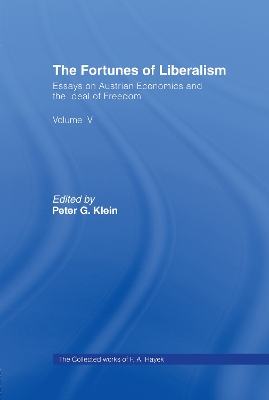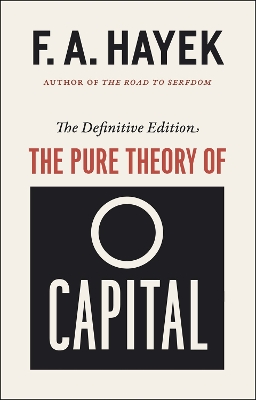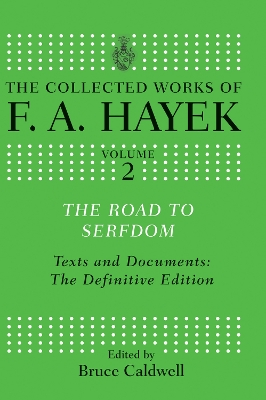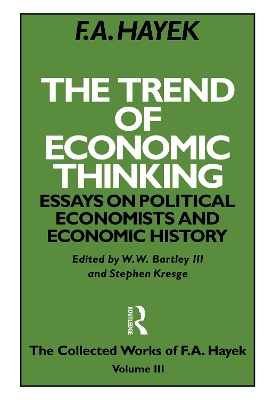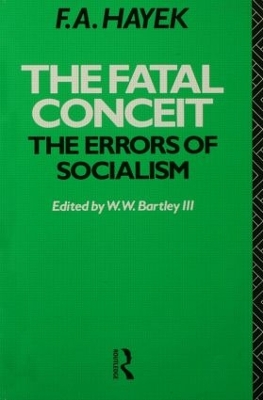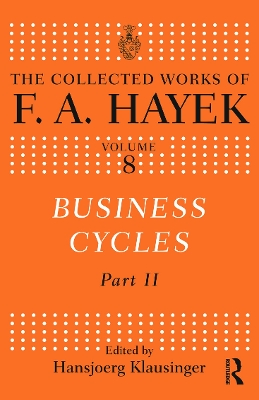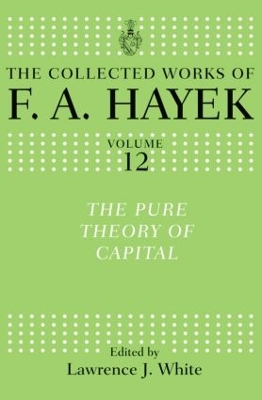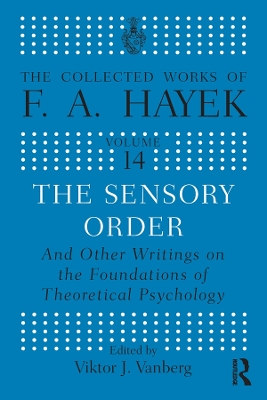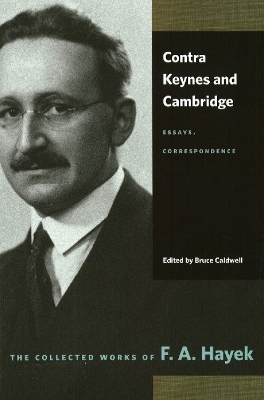The Collected Works of F.A. Hayek
3 primary works • 11 total works
Book 4
In this new collection of essays, F.A. Hayek traces his intellectual roots to the `Austrian school' of economics and links it to the modern rebirth of classical liberal or `libertarian' thought. There is much new interesting material here for scholars of Hayek: essays on Hayek's early life and on the intellectual climate of Vienna in the early part of the twentieth century; Hayek's opening address to the inaugural meeting of the Mont Pélerin Society and other material from the period when Hayek was playing his part in the revival of liberal thought; Hayek's views on his teachers and on other leading figures in the Austrian school.
This is the fourth volume of The Collected Works of F.A. Hayek and the third to appear. This series provides a new standard edition of Hayek's writing - complete, newly ordered and comprehensively annotated. Much of the material in this volume is either previously unpublished or previously unavailable in English.
Book 12
The Pure Theory of Capital, F. A. Hayek's long-overlooked, little-understood volume, was his most detailed work in economic theory. Originally published in 1941 when fashionable economic thought had shifted to John Maynard Keynes, Hayek's manifesto of capital theory is now available again for today's students and economists to discover.
With a new introduction by Hayek expert Lawrence H. White, who firmly situates the book not only in historical and theoretical context but within Hayek's own life and his struggle to complete the manuscript, this edition commemorates the celebrated scholar's last major work in economics. Offering a detailed account of the equilibrium relationships between inputs and outputs in an economy, Hayek's stated objective was to make capital theory--which had previously been devoted almost entirely to the explanation of interest rates--"useful for the analysis of the monetary phenomena of the real world." His ambitious goal was nothing less than to develop a capital theory that could be fully integrated into the business cycle theory.
Book 13
"The studies of which this book is the result have from the beginning been guided by and in the end confirmed the somewhat old-fashioned conviction of the author that it is human ideas which govern the development of human affairs," Hayek wrote in his notes in 1940. Indeed, Studies on the Abuse and Decline of Reason remains Hayek’s greatest unfinished work and is here presented for the first time under the expert editorship of Bruce Caldwell.
In the book, Hayek argues that the abuse and decline of reason was caused by hubris, by man’s pride in his ability to reason, which in Hayek’s mind had been heightened by the rapid advance and multitudinous successes of the natural sciences, and the attempt to apply natural science methods in the social sciences.
A classic work in political philosophy, intellectual history and economics, The Road to Serfdom has inspired and infuriated politicians and scholars for half a century. Originally published in 1944, it was seen as heretical for its passionate warning against the dangers of state control over the means of production. For Hayek, the collectivist idea of empowering government with increasing economic control would lead not to a utopia but to the horrors of Nazi Germany and Fascist Italy.
This new edition includes a foreword by series editor and leading Hayek scholar Bruce Caldwell explaining the book's origins and publishing history and assessing common misinterpretations of Hayek's thought. Caldwell has also standardized and corrected Hayek's references and added helpful new explanatory notes. Supplemented with an appendix of related materials and forewords to earlier editions by the likes of Milton Friedman, and Hayek himself, this new edition of The Road to Serfdom will be the definitive version of Friedrich Hayek's enduring masterwork.
Originally published in 1960, The Constitution of Liberty delineates and defends the principles of a free society and traces the origin, rise, and decline of the rule of law. Casting a skeptical eye on the growth of the welfare state, Hayek examines the challenges to freedom posed by an ever expanding government as well as its corrosive effect on the creation, preservation, and utilization of knowledge.
In distinction to those who confidently call for the state to play a greater role in society, Hayek puts forward a nuanced argument for prudence. Guided by this quality, he elegantly demonstrates that a free market system in a democratic polity-under the rule of law and with strong constitutional protections of individual rights-represents the best chance for the continuing existence of liberty.
Striking a balance between skepticism and hope, Hayek's profound insights remain strikingly vital half a century on. This definitive edition of The Constitution of Liberty will give a new generation the opportunity to learn from Hayek's enduring wisdom.
In the years following its publication, F. A. Hayek's pioneering work on business cycles was regarded as an important challenge to what was later known as Keynesian macroeconomics. Today, as debates rage on over the monetary origins of the current economic and financial crisis, economists are once again paying heed to Hayek's thoughts on the repercussions of excessive central bank interventions.
The latest editions in Routledge's ongoing series The Collected Works of F. A. Hayek, these volumes bring together Hayek's work on what causes periods of boom and bust in the economy. Moving away from the classical emphasis on equilibrium, Hayek demonstrates that business cycles are generated by the adaptation of the structure of production to changes in relative demand. Thus, when central banks artificially lower interest rates, the result is a misallocation of capital and the creation of asset bubbles and additional instability. Business Cycles: Part I contains Hayek's two major monographs on the topic: Monetary Theory and the Trade Cycle and Prices and Production. Reproducing the text of the original 1933 translation of the former, this edition also draws on the original German, as well as more recent translations. For Prices and Production, a variorum edition is presented, incorporating the 1931 first edition and its 1935 revision. Business Cycles: Part II assembles a series of Hayek's shorter papers on the topic, ranging from the 1920s to 1981.
In addition to bringing together Hayek's work on the evolution of business cycles, the two volumes of Business Cycles also include extensive introductions by Hansjoerg Klausinger, placing the writings in intellectual context, including their reception and the theoretical debates to which they contributed, and providing background on the evolution of Hayek's thought.
F. A. Hayek’s long-overlooked volume, was his most detailed work in economic theory. Originally published in 1941 when fashionable economic thought had shifted to John Maynard Keynes, Hayek’s manifesto of capital theory is now available again for today’s students and economists to discover.
With a new introduction by Hayek expert Lawrence H. White, who firmly situates the book not only in historical and theoretical context but within Hayek’s own life and his struggle to complete the manuscript, this edition commemorates the celebrated scholar’s last major work in economics. Offering a detailed account of the equilibrium relationships between inputs and outputs in an economy, Hayek’s stated objective was to make capital theory "useful for the analysis of the monetary phenomena of the real world.” His ambitious goal was nothing less than to develop a capital theory that could be fully integrated into the business cycle theory.
The Sensory Order and Other Writings on the Foundations of Theoretical Psychology
by F A Hayek
The Sensory Order, first published in 1952, sets forth F. A. Hayek's classic theory of mind in which he describes the mental mechanism that classifies perceptions that cannot be accounted for by physical laws. Hayek's substantial contribution to theoretical psychology has been addressed in the work of Thomas Szasz, Gerald Edelman, and Joaquin Fuster.
